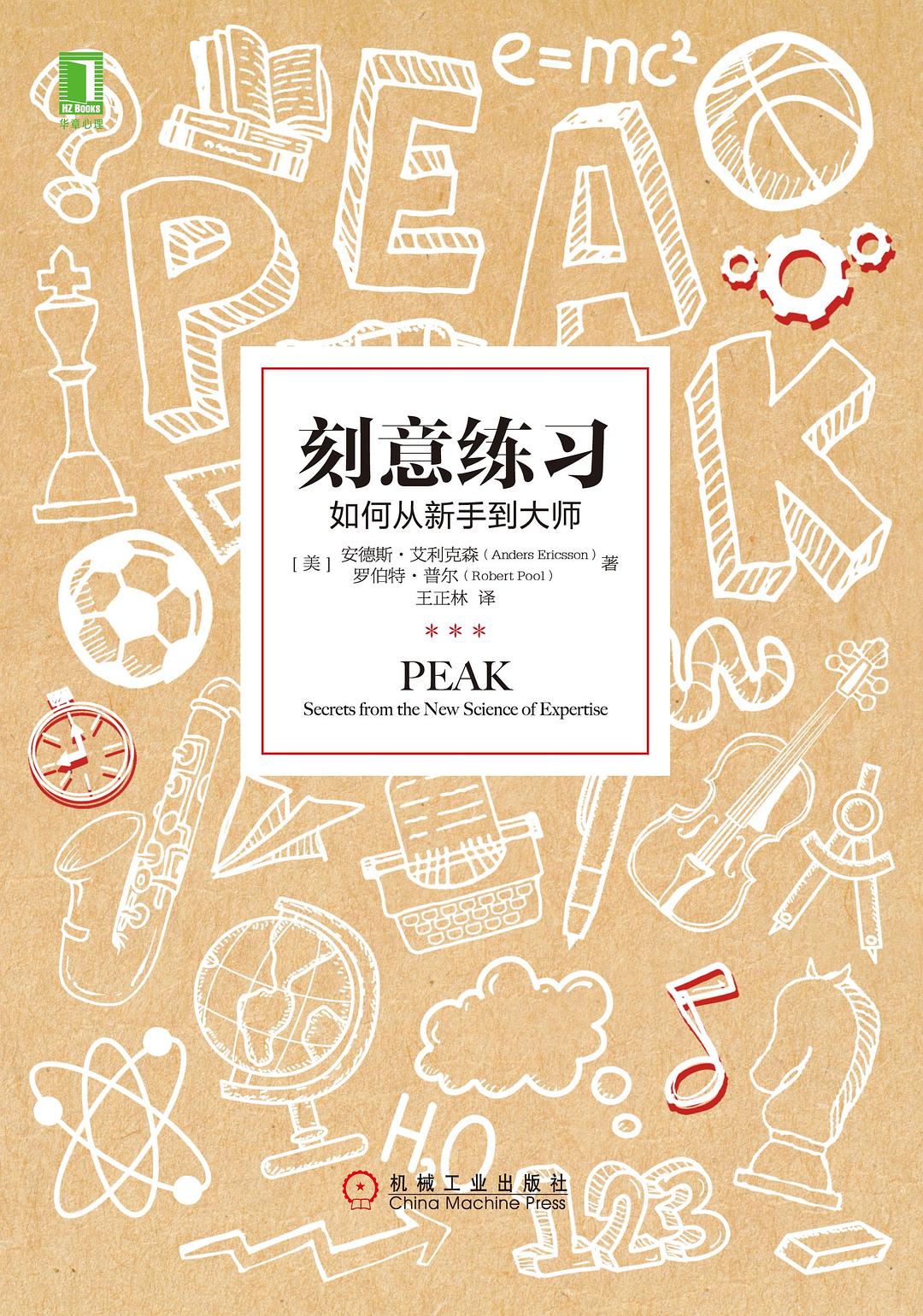WULOLIFE
《刻意练习》副标题: 如何从新手到大师 作者: [美] 安德斯·艾利克森(Anders Ericsson) /罗伯特·普尔(Robert Pool)
《刻意练习》副标题: 如何从新手到大师 作者: [美] 安德斯·艾利克森(Anders Ericsson) /罗伯特·普尔(Robert Pool)
Couldn't load pickup availability
Description
内容简介 · · · · · ·
4岁就首曲子,
瞬间记住几百个随机数字,一秒内说出某个日子是周几,
入行1 年就获得世界跳高冠军,同时和26人下盲棋,14岁即成为世界象棋大师
所有人都以为“杰出”源于“天赋”,
“天才”却说:我的成就源于“正确的练习”!
著名心理学家艾利克森在“专业特长科学”领域潜心几十年,研究了一系列行业或领域中的专家级人物:国际象棋大师、顶尖小提琴家、运动明星、记忆高手、拼字冠军、杰出医生等。
他发现,不论在什么行业或领域,提高技能与能力的最有效方法全都遵循一系列普遍原则,他将这种通用方法命名为“刻意练习”。
对于在任何行业或领域中希望提升自己的每个人,刻意练习是黄金标准,是迄今为止发现的最强大的学习方法。
作者简介 · · · · · ·
安德斯•艾利克森博士
(Anders Ericsson, Phd)
“刻意练习”法则研创者,佛罗里达州立大学心理学教授,康拉迪杰出学者。他专注于研究体育、音乐、国际象棋、医学、军事等不同领域中的杰出人物如何获现,以及“刻意练习”法则在其中的作用。他是该领域世界顶级研究者之一。
题的几部学术专著:《从平凡到卓越:前景与局限》《通向卓越之路》《剑桥专业特长与杰出表现指南》等。《刻意练习:如何从新手到大师》是他于2016年出版的畅销书,首次向大众读者普及“刻意练习”法则,这也是他首次出版的中文书
目录 · · · · · ·
我们的大脑拥有和莫扎特这样的“天才”相同的适应能力,“天才”只是更多地利用了这种适应能力。
莫扎特的完美音高 //002
“天才”是训练的产物 //007
本书将告诉我们什么 //010
第1章的水平,并且可以做到自动化,那么再多“练习”几年,也不会有什么进步,而且还会缓慢退化。有目的的练习则更加有效。
史蒂夫的超强记忆力 //018
各领域的杰出人物都靠大量练习 //022
从有目的的练习讲起 //028
有目的的练习的四个特点 //033
遇到瓶颈怎么办 //038
有目的的练习还不够 //043
第2章 大脑的适应能力一个人遇到的挑战越大,大脑的变化就越大,学习也越高效,但是过分逼迫自己可能导致倦怠。因此,处在舒适区之外却离得不太远的挑战,能使大脑的改变最为迅速。
伦敦出租车司机的大脑 //049
大脑拥有无限的适应能力 //055
走出舒适区的重要性 //060
练习改变大脑结构 //065
潜能可以被构筑 //071
第3章心理表征在任何一个行业或领域,技能与心理表征之间的关系是一种良性循环:你的技能越娴熟,创建的心理表征就越好;而心理表征越好,就越能有效地提升技能。
偶然的盲棋大师 //076
大师比新手强在哪里 //080
心理表征是什么 //085
心理表征有助于找出规律 //090
心理表征有助于解释信息 //093
心理表征有助于组织信息 //095
心理表征有助于制订计划 //100
心理表征有助于高效学习 //105
第4章一要一个已经得到合理发展的行业或领域;其次,需要一位能够布置训练作业的导师。
从音乐领域开始 //114
最杰出的人,练习时间最长 //121
刻意练习是什么 //127
如何运用刻意练习原则 //131
1万小时法则的错与对 //141
第5章在工作中运用刻意练习原则培养以练习为导向的心即不再认为工作日只能用来工作,练习只能在特殊时刻、特定场合才能进行,而是将日常商业活动转变成练习活动,将练习变为日常工作的一部分。
王牌训练计划 //150
让练习变成日常工作的一部分 //154
用王牌训练方法训练医生 //159
致力于传授知识的传统方法 //167
致力于改进技能的新方法 //175
第6章在生活中运用刻意练习原则刻意训练针对的是每个有梦想的人,可以帮助每个想学习怎样画画、编程、变魔术、吹萨克斯管、写小说的人。它针对的是所有那些想掌控自己的人生、不甘心于现状的人们。
首先,找位好导师 //185
专注和投入至关重要 //189
没有导师,怎么办 //194
跨越停滞阶段 //201
保持动机 //206
第7章成为杰出人物的成长路线:一,产生兴投入;四,开拓创新。
三位女性象棋大师 //225
第一阶段:产生兴趣 //228
第二阶段:变得认真 //234
第三阶段:全力投入 //238
年龄与适应能力的关系 //240
成年人也可培养出完美音高 //246
第四阶段:开拓创新 //250
第8章怎样解释天生才华自闭症奇才并不是天生拥有某种神奇的才能。相反,他们和其他任何人一样,是通过练习来练就那些本领的。
破解“帕格尼尼奇迹” //256
破解“莫扎特传奇” //260
破解“天才跳高运动员的神迹” //265
破解“自闭症奇才” //270
“缺乏”天生才华的人 //273
训练VS “天才” //277
换个角度看基因差异 //286
相信天生才华的危险性 //292
第9章用刻意练习创造全新的世界我们可以给孩子留下的最重要的礼物,是帮助他们发展出本来认为自己不可能具备的能力,从而发现自己能够掌控自身潜能,也知道要使付出怎样的努力。
用刻意练习原则教物理 //300
刻意练习的前景 //304
创造全新的世界 //313
参考文献和注释
